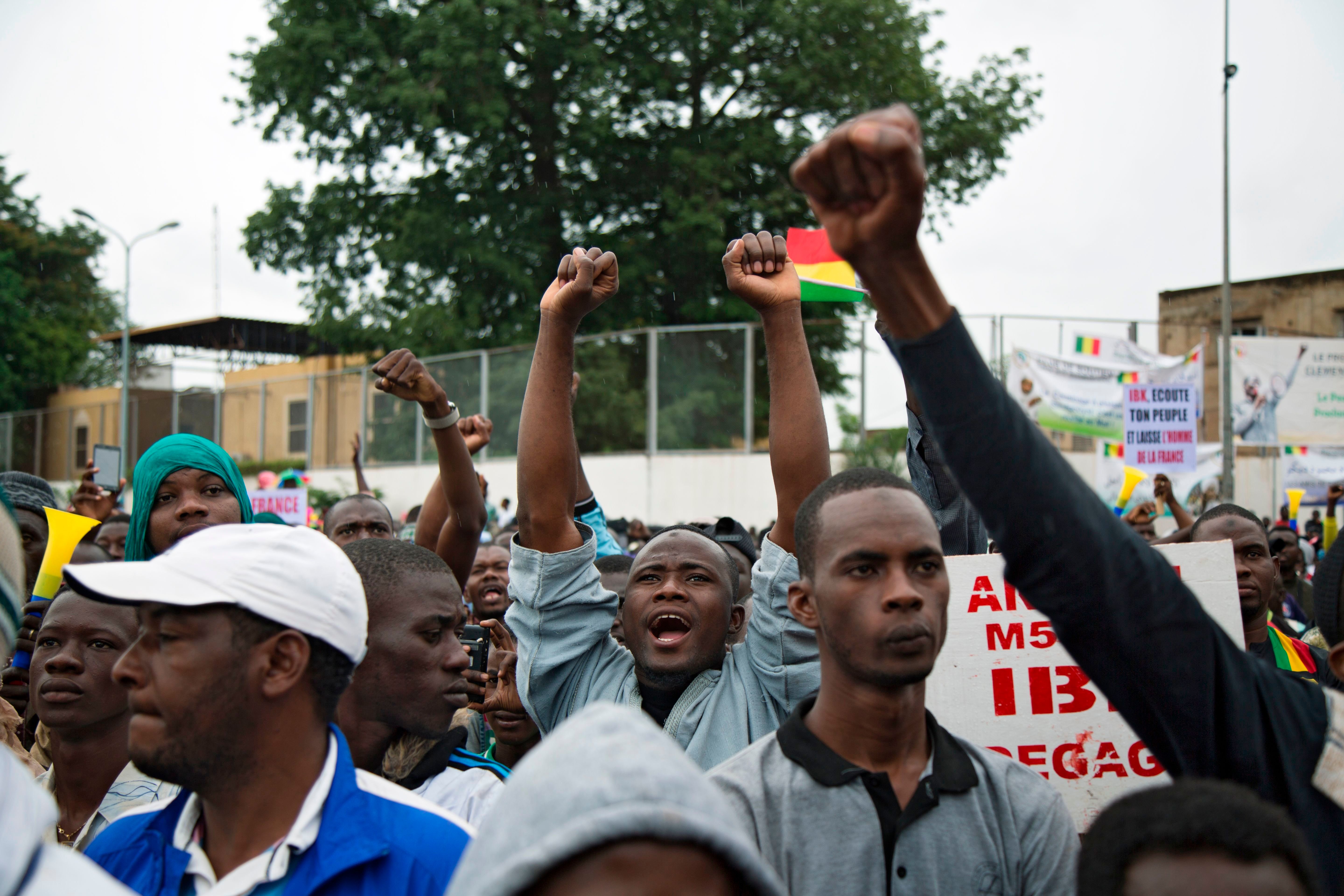Protests Continue In Mali as Demonstrators Demand the Removal of President Keïta
Current demonstrations are considered the largest in Mali in years.
Protestors have returned to the streets of Bamako, Mali to demand the ousting of President Ibrahim Boubacar Keïta.
Demonstrations began in mid-July when Malians—under the banner of the opposition group, the June 5th Movement—demonstrated against a deepening financial crisis, government corruption and conflict stemming from the ongoing separatist movement in the country. Lethal force was used against protesters, resulting in the death of 11 people in clashes with security forces in July, Al Jazeera reports.
The current wave of protests are also tied to an official ruling in April, which overturned the results of parliamentary polls for 31 seats, which led to Keïta's re-election. The president has been office since 2013.
READ: Deep Dive: Protests Movements Across the Continent
Protests paused just a week ago in recognition of Eid, but were reignited on Tuesday when thousands took to Bamako's Independence Square once again, despite pleas from representatives of the Economic Community of West African states (ECOWAS) to remain home. The ECOWAS remain in support of Keïta staying in office.
"Demonstrations do not solve problems per se," said former Nigerian president Goodluck Jonathan, who is the ECOWA's mediator of the current crisis in Mali.
"Encouraging more demonstrations is just exposing young people to big risk," he said. "People could die in the process."
According to an AFP report via France 24, ahead of Jonathan's statements, the June 5th Movement had reportedly rejected proposals from the ECOWA's for a compromise by continuing to push for Keïta's removal.
The ECOWAS have instead suggested the appointment of new judges to the court, and new elections in the 31 areas where parliamentary seats were previously overturned. Opposition leaders have not found these proposals satisfactory.
"We will continue our fight until the end of IBK and of his regime," opposition leader Choguel Maiga told the news outlet.
Current demonstrations are considered the largest political uprising in Mali in recent years, echoing social unrest taking place globally at this moment in time.
- Deep Dive: Protest Movements Across the Continent - OkayAfrica ›
- Malian Government Condemned For Lethal Force Used Against ... ›
- Malians Heading to Voting Polls Despite Coronavirus Outbreak ... ›
- Malian Government Condemned For Lethal Force Used Against ... ›
- Malian Musician Ballake Sissoko's Seeks Answers From US ... ›
- Malian President Ibrahim Boubacar Keita Has Resigned Amid Military Mutiny - OkayAfrica ›
- Mali Announces New Interim Prime Minister Following Ongoing Protests - OkayAfrica ›
- Deep Dive: Protest Movements Across the Continent - OkayAfrica ›
- Tunisian Protests Enter Fourth Consecutive Day - OkayAfrica ›
- Mali Adopts New Constitution, Replacing French as Official State Language in a Historic Move - Okayplayer ›
